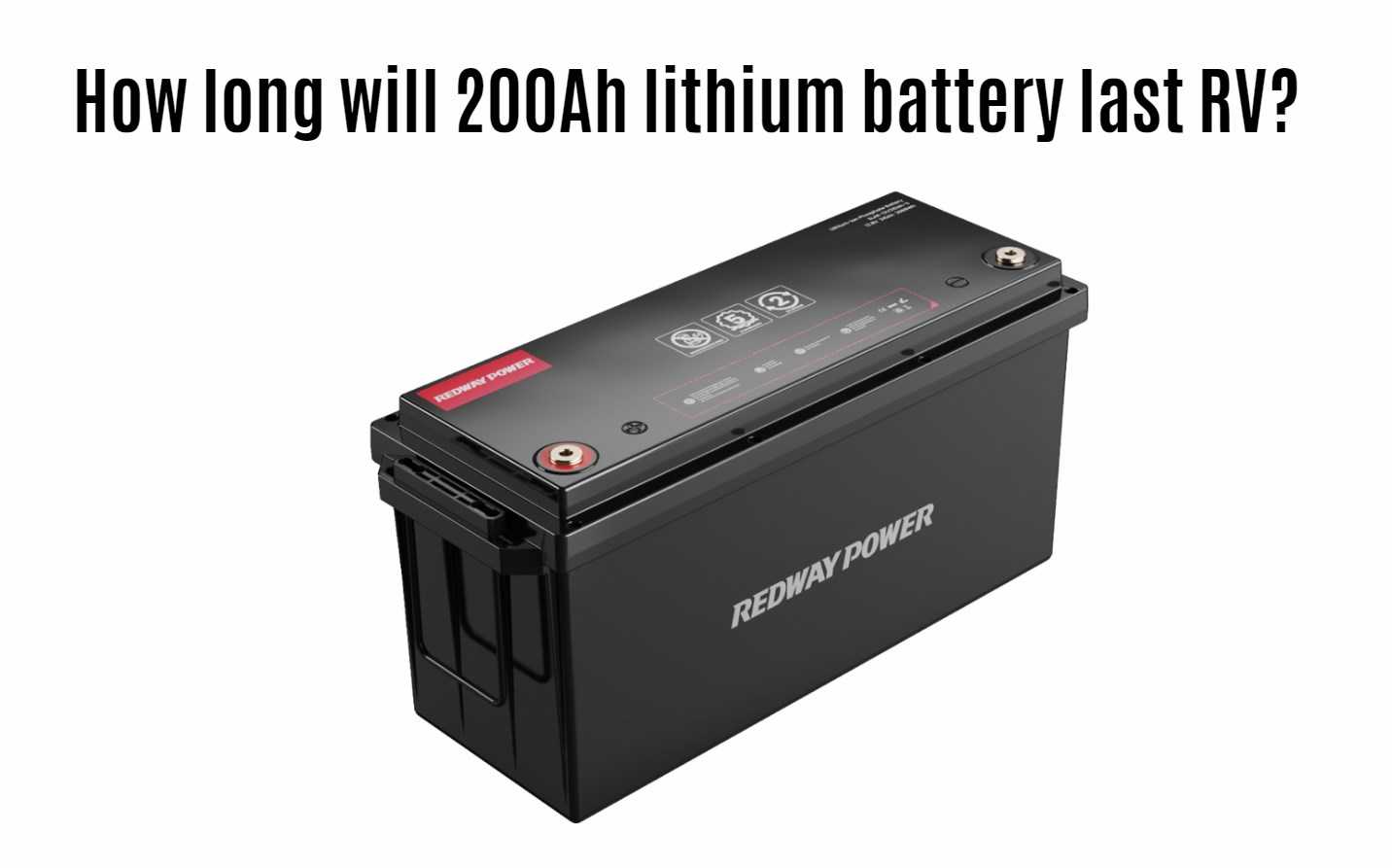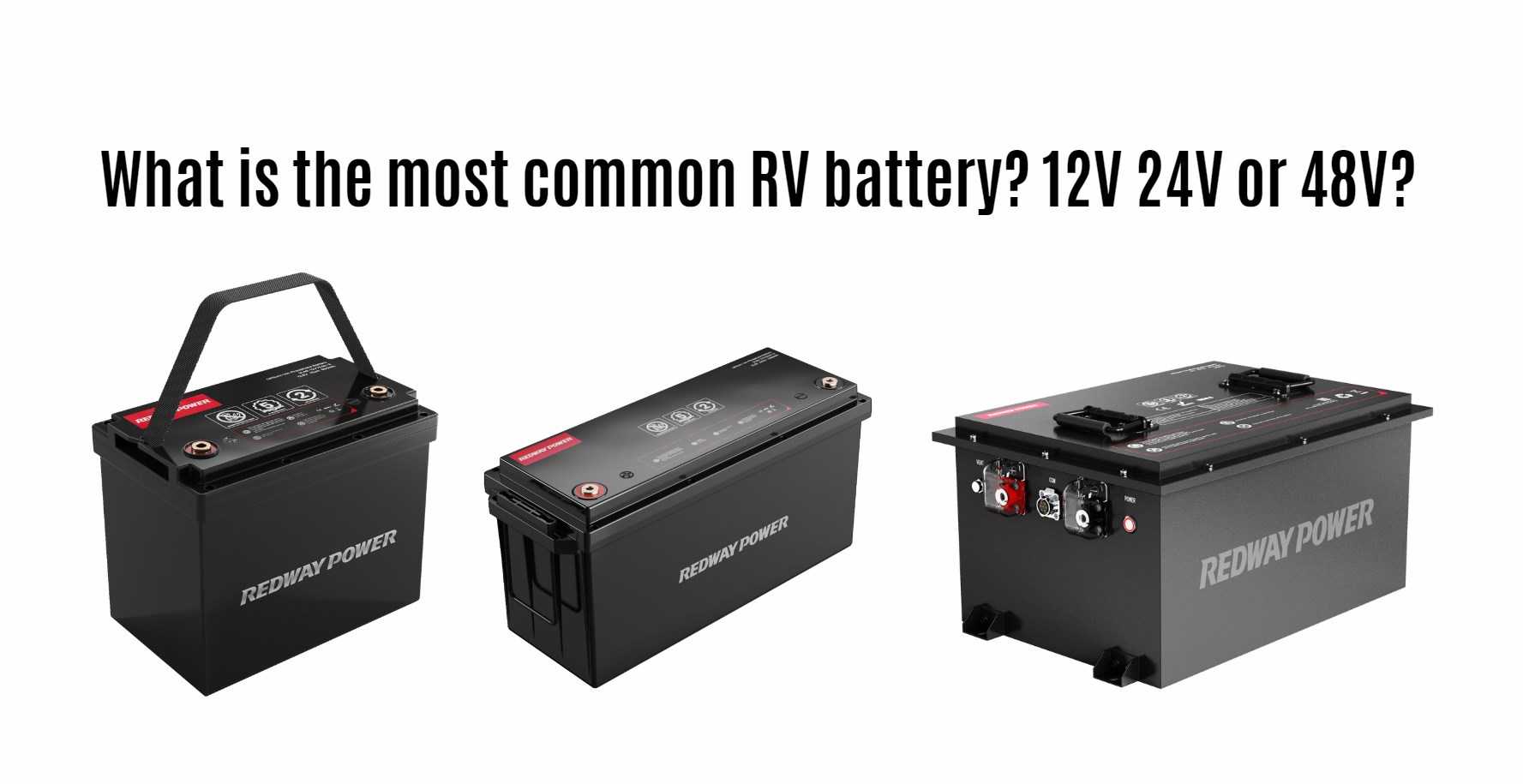Are you planning to hit the open road in your RV but unsure about which battery to use? Look no further! In this blog post, we will explore the most common types of RV batteries and help you determine which one is best for your needs. From 12v to 24v and even up to 48v, we’ve got all the information you need to make an informed decision for a smooth trip ahead. So buckle up and let’s get started!
How long will 200Ah lithium battery last RV?
The duration a 200Ah lithium battery lasts in an RV depends on factors like usage, discharge rate, and battery type. Here are some estimates:
- Lithium Battery (LiFePO4):
- Depth of Discharge (DoD): 80-90%
- Usable Amp-Hours: Around 180Ah
- Example: A 200Ah LiFePO4 battery can run a 500W device for approximately 4.32 hours.
- Lifespan: Over 10 years with 4000-15000 cycles.
- AGM Deep Cycle Battery:
- DoD: 80%
- Usable Amp-Hours: About 160Ah
- Estimated runtime varies based on the load (e.g., 10W to 3000W devices) but can range from 1 hour to over 200 hours.
- Lead Acid Battery (e.g., traditional flooded lead-acid):
- DoD: 50%
- Usable Amp-Hours: Around 100Ah
- Recommended to drain only to 50% capacity for optimal battery life.
- Lifespan: Varies but typically less than lithium batteries.
Keep in mind that actual usage patterns, maintenance practices, and specific appliances will impact battery life. If you’re boondocking, monitor your battery usage and recharge as needed.

How to care for your RV battery
Proper care of your RV battery is essential to ensure its longevity and reliable performance. Let’s dive into some key tips for maintaining your RV battery:
- Battery Types and Maintenance:
- Flooded Lead-Acid Batteries: These require regular charging to maintain efficiency. They naturally off-gas, so you’ll need to refill them with distilled water on a schedule.
- Sealed Lead-Acid (Gel and AGM) Batteries: These are more common in RVs. They don’t off-gas and don’t need frequent maintenance.
- Lithium-Ion Batteries: Low-maintenance, sealed, and efficient. They’re the most hassle-free option.
- Cleaning Your RV Batteries:
- Step 1: Disconnect the batteries from your RV’s electrical system.
- Step 2: Clean terminals, leads, battery body, and mounting location.
- Step 3: Fully charge the battery.
- Step 4: For flooded lead-acid batteries, add distilled water to the proper level.
- Storage Tips:
- Disconnect: Store the battery separately during winter rather than keeping it plugged inside the RV.
- Clean and Charge: Clean terminals, leads, and battery body. Fully charge the battery before storage.
- Check Charge: Monitor the charge level periodically during storage.
Remember, proper care ensures your RV battery serves you well during your adventures!
How long can you Boondock with lithium batteries?
The duration of boondocking with lithium batteries depends on their capacity and usage. Let’s break it down:
- Battery Capacity: If you have a 200Ah usable capacity lithium battery, it can theoretically last for eight days if you deplete it by 25Ah daily.
- Factors Affecting Duration:
- Power Generation: If your ability to generate power (e.g., solar panels) is affected, the duration may decrease.
- Increased Use: Using more power (plugging in gadgets, appliances, etc.) will reduce the battery’s lifespan.
Remember, efficient energy management and conservation play a crucial role in extending your boondocking time!
Is 100aH lithium enough for camping?
A 100Ah lithium battery can be sufficient for camping, but it depends on your power needs. Here are some considerations:
- Power Usage: Assess your energy requirements. Consider devices like lights, fans, phone chargers, laptops, and appliances.
- Usable Capacity: Lithium batteries allow deeper discharge (80-90% DoD), so you get more usable capacity (around 80Ah).
- Runtime: Example: A 100Ah battery can power a 100W device for approximately 0.8 hours (assuming 80% DoD).
- Recharge: Plan for recharging (solar panels, shore power, generator) to extend usage.
Remember to balance power needs with battery capacity for an enjoyable camping experience! ️⚡️
What is the most common RV battery?
The most common RV batteries fall into three types:
- Conventional Flooded Electrolyte (CVE) Batteries: These come with new RVs and are widely used. They require regular maintenance, including adding distilled water.
- AGM (Absorbent Glass Mat) Batteries: AGM batteries serve as both deep cycle and starting batteries. They are maintenance-free and offer good performance.
- Gel Batteries: Gel batteries are another common choice for RVs
What is the best 12 volt battery for camping?
When it comes to choosing the best 12-volt battery for camping, several options cater to different needs. Here are some recommendations:
- Lithium Batteries:
- LiFePO4 (Lithium Iron Phosphate) batteries offer advantages like lightweight design, deep cycling capability, and long lifespan.
- Epoch Batteries 12V 460Ah LiFePo4 is a premium choice with a smart BMS and self-heating features.
- LiTime 12V 200Ah PLUS Lithium LiFePO4 Battery is another excellent option.
- AGM Batteries:
- Trojan T-105 is a reliable and cost-effective deep-cycle AGM battery.
- Renogy Deep Cycle AGM Battery combines innovative design with durability.
- Solar Generators:
- Goal Zero Yeti PRO 4000 paired with the Nomad 400 solar panel is a powerful solution for off-grid camping.
Remember to consider factors like capacity, weight, and budget when making your choice! ️⚡️
How many amps should an RV battery have?
For most RV adventures, a battery capacity ranging between 100-200 Ah should suffice. Less than 100 Ah, and you’ll be limited to charging gadgets. More than 200 Ah, and even the icy tundras of Canada won’t stop your off-grid expeditions!




